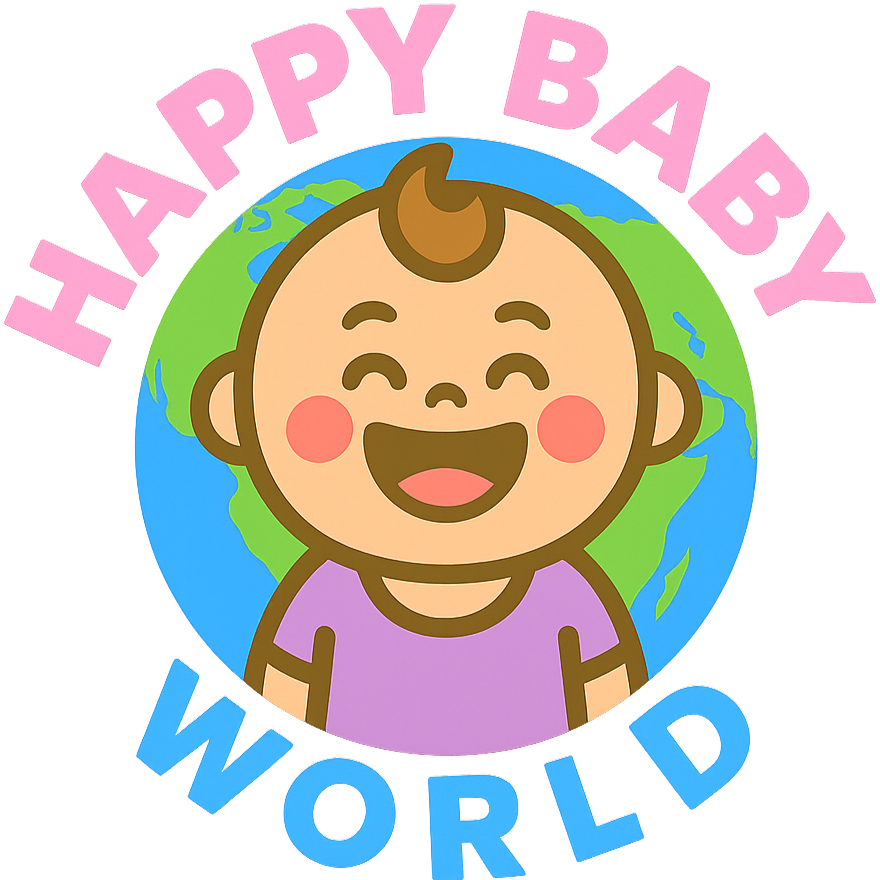Motherhood can be the most profound and beautiful transformation of your life — yet for many parents, it also comes with a quiet, aching truth: I’ve lost myself in motherhood. This feeling doesn’t mean you love your child any less. It means you’ve poured so much of yourself into nurturing another human being that you’ve forgotten to nurture your own identity. The good news is that this moment of realization can be the turning point toward deeper connection, restored balance, and renewed joy for both you and your child.
When “Lost Myself in Motherhood” Becomes Your Silent Story
It often starts subtly — skipping a hobby you once loved, shelving personal goals, or feeling like your conversations revolve entirely around nap schedules and snack times. Over time, you may notice that the vibrant, multi‑layered person you were before parenthood feels distant. This is a common and deeply human experience, especially in a culture that often celebrates self‑sacrifice in parenting without equally honoring self‑preservation.
Recognizing that you’ve lost yourself in motherhood is not a sign of failure; it’s a sign of awareness. Awareness is the first step toward reclaiming your sense of self while still embracing the sacred role of being a parent.
Why Losing Yourself in Motherhood Happens
The shift into motherhood is more than a lifestyle change — it’s a complete identity transformation. Your routines, relationships, priorities, and even your sense of time are reshaped around your child’s needs. Add to that the societal pressure to be endlessly available, and it’s easy to see why personal boundaries blur.
Common reasons parents feel they’ve lost themselves in motherhood include:
- Unrealistic expectations — believing you must do everything perfectly.
- Lack of support systems — feeling isolated in your caregiving role.
- Emotional overload — constant vigilance and decision‑making fatigue.
- Neglecting personal passions — letting go of activities that once fueled your joy.
Understanding these root causes helps you address them directly, turning the feeling of being lost into an opportunity for intentional growth.
Reframing “Lost” as a Path to Rediscovery
It’s tempting to see the phrase lost myself in motherhood as purely negative, but what if it’s also an invitation? Losing yourself can mean you’re in the process of becoming someone new — someone wiser, more compassionate, and more resilient. The key is to guide that transformation consciously, so you emerge with both your identity and your bond with your child strengthened.
By reframing this challenge, you shift from a mindset of depletion to one of expansion. Instead of asking, “How do I get my old self back?” you begin asking, “How do I integrate who I was with who I am now?”
Validating Your Feelings Without Guilt
One of the most healing steps in this journey is to acknowledge your feelings without judgment. You can love your child deeply and still miss parts of your pre‑parent life. This duality is not a contradiction — it’s a reflection of your humanity.
When you admit, “I feel like I’ve lost myself in motherhood,” you’re not being selfish; you’re being honest. That honesty opens the door to solutions that honor both your needs and your child’s needs. Self‑compassion is the foundation for any lasting change.
The Power of Micro‑Moments for Self‑Reconnection
You don’t need a week‑long retreat to start finding yourself again. Small, intentional actions can have a profound impact. These micro‑moments of reconnection help you remember that you are more than your to‑do list.
Try:
- Five‑minute rituals — a morning stretch, a favorite song, or a mindful cup of tea.
- Creative bursts — jotting down a poem, sketching, or cooking something just for you.
- Nature breaks — stepping outside for fresh air, even if it’s only for a few minutes.
These moments remind you that self‑care is not a luxury; it’s a necessity that fuels your ability to parent with patience and joy.
Restoring Balance Through Boundaries
One of the most practical ways to address the feeling of being lost in motherhood is to set and maintain healthy boundaries. Boundaries protect your time, energy, and emotional well‑being, allowing you to show up more fully for your child.
Consider:
- Time boundaries — scheduling regular “you” time, even if it’s brief.
- Emotional boundaries — recognizing when you need to step back and recharge.
- Social boundaries — saying no to commitments that drain you.
Boundaries are not walls; they are bridges that connect you to your child from a place of strength rather than exhaustion.
Reconnecting With Your Pre‑Motherhood Passions
Your passions are not relics of a past life — they are threads that can weave beautifully into your present. Whether it’s painting, running, writing, or learning a new skill, reintroducing these activities into your life can reignite your sense of self.
Start small. If you loved reading, commit to a few pages a night. If you enjoyed dancing, put on music while making dinner. These acts signal to yourself and your child that joy is worth prioritizing.
Strengthening the Parent‑Child Connection Through Self‑Care
It may seem counterintuitive, but taking time for yourself can actually deepen your bond with your child. When you feel fulfilled and balanced, you bring more patience, creativity, and presence to your parenting.
Children learn by example. When they see you valuing your own well‑being, they internalize the message that their needs matter — and so do yours. This mutual respect becomes the foundation for a lifelong, healthy relationship.
Turning Overwhelm Into Opportunity
Overwhelm is often the tipping point where parents realize, “I’ve lost myself in motherhood.” Instead of seeing overwhelm as a sign to push harder, see it as a signal to pause and reassess. Ask yourself: What’s draining me most right now? What can I let go of, delegate, or simplify?
By treating overwhelm as a messenger rather than an enemy, you create space for solutions that restore balance and joy.
Calming the Fear of Losing Yourself Forever
One of the most persistent fears parents carry is that the version of themselves they once knew is gone for good. This fear can quietly fuel resentment, guilt, or sadness. But identity is not a fixed point — it’s a living, evolving story. Motherhood doesn’t erase your past self; it adds new chapters.
By embracing the idea that you can integrate your old passions, values, and dreams into your current life, you replace fear with curiosity. Instead of mourning who you were, you begin exploring who you’re becoming — a self that holds both your individuality and your role as a parent in harmony.
Easing Overwhelm With Systems That Work for You
Overwhelm often comes from trying to meet every need at once without a clear structure. Creating simple, flexible systems can help you reclaim mental space and energy. These systems don’t have to be rigid schedules; they can be gentle frameworks that make daily life more predictable.
Examples include:
- Morning anchors — a consistent start to the day that grounds you.
- Meal rotations — a set of go‑to recipes that reduce decision fatigue.
- Shared calendars — so responsibilities are visible and shared.
When your days have a rhythm, you spend less energy on logistics and more on connection — both with yourself and your child.
Restoring Balance Through Support Networks
No parent is meant to do this alone. Building a support network — whether through family, friends, neighbors, or parenting groups — can be transformative. Support isn’t just about having someone to watch the baby; it’s about having people who see you.
Seek out relationships where you can speak openly about your experiences without fear of judgment. These connections remind you that your identity is multifaceted and that you are valued beyond your role as a caregiver.
Deepening Connection by Slowing Down
In the rush of daily tasks, it’s easy to miss the small, magical moments with your child. Slowing down doesn’t mean neglecting responsibilities; it means being intentional about presence. When you pause to truly listen to your child’s laughter or watch them discover something new, you create memories that nourish both of you.
Ironically, slowing down can also help you feel less lost in motherhood. It shifts your focus from constant doing to meaningful being — a space where your identity can breathe.
Healing Through Shared Joy
Joy is a powerful antidote to the feeling of being lost. Shared joy — moments where you and your child are both fully engaged and delighted — strengthens your bond and reminds you why this journey matters.
This could be as simple as dancing in the living room, baking cookies together, or exploring a park. These experiences don’t just benefit your child; they refill your emotional reserves and help you reconnect with the playful, spontaneous parts of yourself.
Letting Go of Perfection
Perfectionism is one of the fastest routes to burnout. When you believe you must be the perfect parent, partner, and person all at once, you set yourself up for constant self‑criticism. Letting go of perfection doesn’t mean lowering your standards; it means redefining success.
Success in motherhood can be measured by connection, not by flawless execution. When you release the pressure to do it all perfectly, you create space for authenticity — and authenticity is where your true self thrives.
Creating a Personal Vision for Motherhood
If you’ve lost yourself in motherhood, it can help to step back and define what you want this chapter of your life to look and feel like. A personal vision acts as a compass, guiding your decisions and helping you align your daily actions with your deeper values.
Ask yourself:
- What kind of relationship do I want with my child?
- How do I want to feel in my daily life?
- What personal dreams do I still want to pursue?
Writing down your vision makes it tangible and easier to revisit when you feel adrift.
Integrating Self‑Care Into Family Life
Self‑care doesn’t have to happen in isolation from your family. In fact, involving your child in certain self‑care practices can make them more sustainable. For example, you might:
- Take family walks as a way to move your body.
- Cook healthy meals together.
- Practice mindfulness with kid‑friendly breathing exercises.
This approach reinforces the idea that caring for yourself is a normal, essential part of life — a lesson that benefits your child as much as it benefits you.
Celebrating Small Wins
When you’re working to reclaim your sense of self, progress can feel slow. That’s why it’s important to celebrate small wins — finishing a book, reconnecting with a friend, or simply taking a deep breath before responding to a stressful moment.
These small victories are proof that you’re moving forward. Over time, they add up to a renewed sense of identity and a deeper connection with your child.
Embracing the Ongoing Journey
Finding yourself again after feeling lost in motherhood is not a one‑time event; it’s an ongoing process. There will be days when you feel balanced and days when you don’t — and that’s okay. What matters is that you keep showing up for yourself with the same compassion you show your child.
By treating this journey as a continuous unfolding rather than a destination, you give yourself permission to grow, adapt, and thrive in every season of motherhood.
Closing Reflection
If you’ve ever whispered to yourself, I’ve lost myself in motherhood, know that you are not alone — and you are not broken. This feeling can be the doorway to a richer, more connected life, where your identity is not diminished by motherhood but expanded by it. By validating your feelings, setting boundaries, nurturing your passions, and embracing shared joy, you can transform this challenge into one of the most empowering chapters of your life.
Real Parenting, Real Support
Subscribe to the Happy Baby World newsletter for honest stories, practical tips, and encouragement to help you find joy and balance in the beautiful, messy reality of raising kids.


Leave a Reply